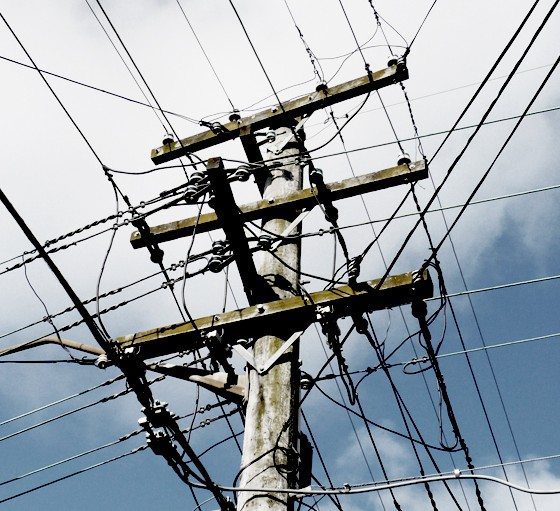One of the big themes of submissions to the review of the Renewable Energy Target – apart from the crocodile tears over consumer bills – was the defence of the decades old centralised energy system by the incumbent power industry.
It was, for the few submissions that got to the nub of the issue, an admission that incumbent business models are simply unable to cope with the suite of new technologies and energy sources that are sweeping into the industry.
But it’s not just electrons produced from the sun, the wind, the waves and the earth that threaten the fossil fuel generators and the networks and retailers that deliver and sell those electrons to consumers. It’s also the way they are distributed and sold that amounts to the greatest threat to business as usual.
This was a theme taken up by global network equipment group Cisco, one of a number of huge multinationals that are identifying huge opportunities in what they expect will be as dramatic a transformation that has occurred in the telco, media, and retail sectors in recent years.
In a piece written for the US website Greentech Media, Rick Geiger, the executive director of Cisco’s Utilities and Smart Grid Business Transformation team, questions whether energy utilities will be able to cope with what he describes as a “generation everywhere” model and the emergence of the “prosumer” – retail and commercial customers with local wind, solar and battery technologies who are providing at least part of their own electricity needs.
As Geiger notes – and this is relevant both to the Climate Change Authority’s review of the RET, as well as the Australian Energy Market Commission’s Power of Choice Review – one of the fundamental tenets of the transformation of the dumb hub-and-spoke model to a smart grid of the future is the regulatory requirement for utilities to accept non utility-owned generation at every point on the grid.
The basic intent of policies such as renewable energy targets, feed-in tariffs, and tax incentives is to increase the amount of renewable energy to avoid the construction of new fossil fuel plant. Hence the increasing volume of wind, solar, and other technologies at large scale, mid scale (parking lot solar, warehouse rooftop solar), and small scale (residential solar). And, he notes, increasing production volumes of renewable technologies have resulted in decreasing costs per kilowatt, with the very real future prospect of price parity with utility-supplied power.
“Energy from large-scale renewables such as wind or solar farms enters the grid and the electric power supply chain in a manner similar to legacy central generation and is delivered at a charge per kilowatt-hour,” he writes.
“Distributed generation at the edge displaces energy that would have been delivered by the grid, reducing the power delivered, which is, of course, the intent. As future revenues from the sale of electric power decline, there is an absolute necessity for the electric power industry to create a business model that is sustainable. This is the core of rate structures that incorporate what is known as “decoupling.”
Geiger suggest that northern Europe, especially Germany and Scandinavia, where levels of renewables integration are the highest in the world thanks to national policies that include generous feed-in tariffs, will provide a guide as to what the near-term future may look like. He notes, however, that it will be a while before alternative fuels can provide for 100 per cent of generation, but that provides challenges for incumbent generators, for instance, who may – as they are finding out in Germany – be restricted to a role of intermittent providers.
“There remains a requirement for a supplier of last resort for additional electric power. The industry as presently structured, from both a physical infrastructure standpoint as well as a business model standpoint, is ill suited to that role,” Geiger notes.
He says the incumbent electric power industry will need to adapt to a range of scenarios where it continues as the primary supplier as “generation everywhere” is deployed, acts as the supplier of “last resort” and for sourcing power for peak demand, smoothing and matching supply and demand, and integrating distributed energy resources, including storage and electric vehicle use, into a new grid model.
But, Geiger asks, are these opportunities for today’s utilities, or for new companies that can operate without the constraints of legacy infrastructure and an outdated regulatory framework? This is where Cisco and others sees the role of communications networks, with the ability to integrate these new systems, and to manage load that will disconnect when prices are unfavorable or that may be disconnected when supply is insufficient.
That makes for interesting times. In Australia, in the Power of Choice review, we are already seeing the start of a regulatory battle between the retailers and the network operators – the latter thinking that with the help of smart technologies of the type offered by Cisco – they may be able to do direct deals with the “prosumers” and cut the retailers out the equation. It should be an interesting battle.










